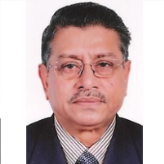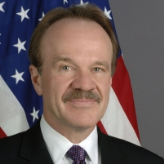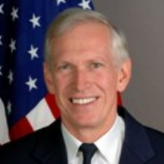Bangladesh
 Qader, Akramul
Qader, Akramul
A career diplomat with a cabinet rank of state minister, Akramul Qader has served as ambassador of Bangladesh to the United States since November 2009. In December 2010, he also assumed the role of ambassador to Mexico.
- Table of Contents
- News
- Overview
- Basic Information
- History
- Newspapers
- History of U.S. Relations with Bangladesh
- Current U.S. Relations with Bangladesh
- Where Does the Money Flow
- Controversies
- Human Rights
- Debate
- Past Ambassadors
- Ambassador to the U.S.
- Embassy Web Site in the U.S.
- Comments
- Leave a comment
U.S. Ambassador to Bangladesh

The new U.S. Ambassador to Bangladesh is a career diplomat who grew up milking cows on the family farm, and whose career has taken him primarily to rural countries in South Asia and Southern Africa. Dan W. Mozena previously served at the embassy in Dhaka, Bangladesh, as Counselor for Political and Economic Affairs from 1998 to 2001. He was sworn in as Ambassador on November 17, 2011.
Previous U.S. Ambassador to Bangladesh

 Qader, Akramul
Qader, Akramul
A career diplomat with a cabinet rank of state minister, Akramul Qader has served as ambassador of Bangladesh to the United States since November 2009. In December 2010, he also assumed the role of ambassador to Mexico.
Comments
U.S. Ambassador to Bangladesh

The new U.S. Ambassador to Bangladesh is a career diplomat who grew up milking cows on the family farm, and whose career has taken him primarily to rural countries in South Asia and Southern Africa. Dan W. Mozena previously served at the embassy in Dhaka, Bangladesh, as Counselor for Political and Economic Affairs from 1998 to 2001. He was sworn in as Ambassador on November 17, 2011.
Previous U.S. Ambassador to Bangladesh








Comments